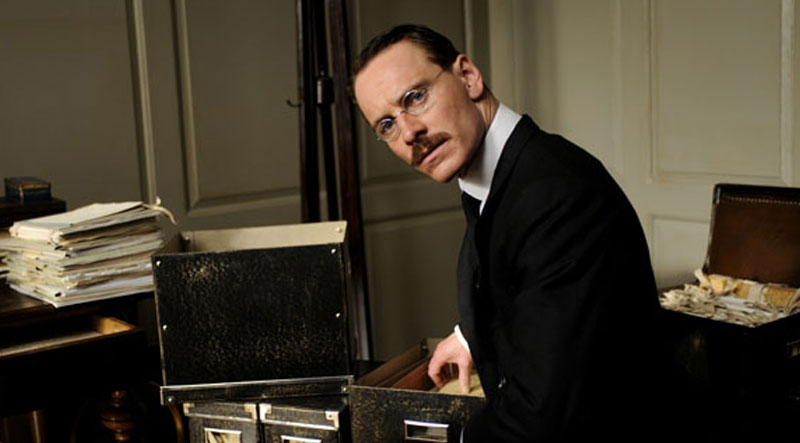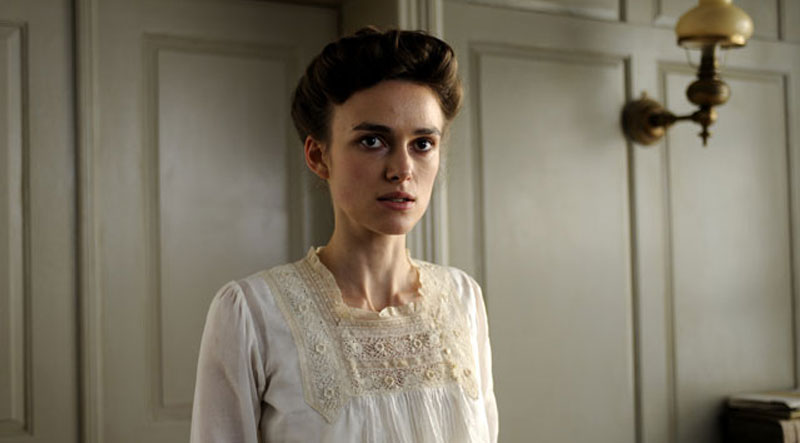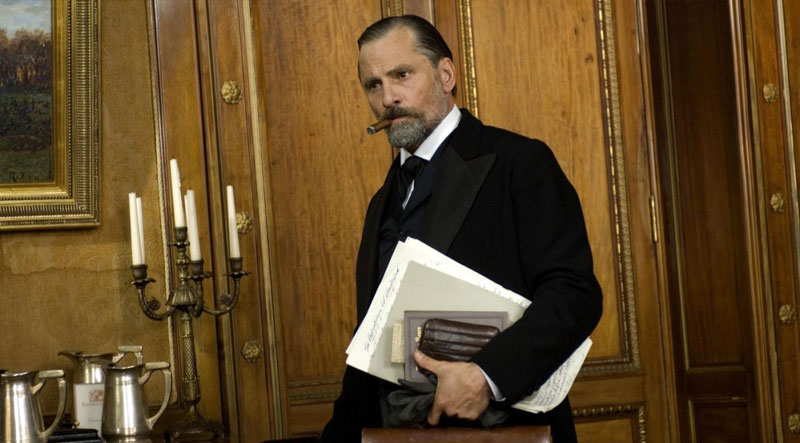
|

|

|

|

|

|

|

|

|

|

|

|


Drawn from true-life events, David Cronenberg’s ‘A Dangerous Method’ chronicles the turbulent relationships between fledgling psychiatrist Carl Jung (Michael Fassbender), his mentor Sigmund Freud (Viggo Mortensen) and Sabina Spielrein (Keira Knightley), the troubled but beautiful young woman who comes between them. Into the mix comes Otto Gross (Vincent Cassell), a debauched patient who is determined to push the boundaries. In this exploration of sensuality, ambition and deceit set the scene for the pivotal moment when Jung, Freud and Sabina come together and split apart, forever changing the face of modern thought. ‘A Dangerous Method’ is set for release November 23rd in the US, and Febuary 10th in the UK. Check out what Michael Fassbender, Viggo Mortensen and Keira Knighley had to say about the film in a quick interview below.
How did you shape playing Carl Jung? What research did you do?
Michael: Basically for me, Christopher Hampton had written such a dense script. Your trying to sort of get a concentrated solution of these characters, which are obviously very infamous. Everybody knows who these people are, other than Keira Knightley’s character, Sabina Spielrein. So I really just concentrated on the script. My main thing was working around trying to get the rhythm of the script. It was written in such a way that I felt like it was a piece of music. So only through lots of repetion did I start to uncover the rhythms in the piece, try to respect the writing. Then any extra research I could do was a luxury. I got a really great book on Carl Jung, it was like a Jung for children (laughs) – a sort of idiot’s handbook. I think I found everything I needed to find in that little book (laughs).

How about you Keira? You seem to love acting in historical based films.
Keira Knightley: I had worked with Christopher Hampton before on ‘Atonement’, so when I knew I was going to do this part I phoned him up and said, ‘help?!’ He gave me a pile of books and just said, ‘read that.’ Jung biographies, including ‘Memories, Dreams, Reflections.’ Translations of Jung’s notes on Sabina, her diary entries, a lot of that. I spoke to some psychoanalysts as well to get that perspective on it.
I do a lot of costume dramas (laughs), I don’t know why, I really just enjoy them. I think it’s a taste thing, I just really enjoy them. I love reading history books so it’s a privilege that that’s part of my job.

Viggo, how did you find playing such an epic, legendary real life person?

Viggo: Christopher Hampton had a wealth of material in the Jung’s letters to use for writing the story, first the play ‘The Talking Cure,’ which is what most of our movies based on. I think any time you play a character that is a historical figure, people that people think they know as well as they do, personalities like Freud and Jung, if you get too weighed down with the idea that you are doing something important, that you are playing someone of significance, your probably not gonna do a good job of it – you’re certainly not going to have much fun. I think the great benefit we had was that David Cronenberg knew a lot about the subject matter before hand. I think a lot of directors, even very fine directors would’ve been weighed down by the burden of making a movie about these characters, and that period.
I felt David felt comfortable with the material, so he could focus on what mattered, which was the relationships between these people, their insecurities, their flaws, their humour – sometimes not intentional, which resulted from their differences of opinion. In the end it’s not an academic exercise, it’s not a documentary movie. It’s a drama that is interesting, sometimes it’s funny, sometimes it’s tragic – that doesn’t deal with the academic issue so much, that’s there, and David Cronenberg knew that, he made us just feel comfortable playing people. Playing people who had differences of opinion, that on paper I don’t think made as much as they made of them, for reasons of pride….certainly the camps, say the Freudian camp has a lot to like and dislike I suppose when they watch this movie maybe, same with fans of Jung, fans of Spielrein. One thing you see in the movie, one thing you learn in the movie is that their intellectual positions weren’t so vastly different, at least that’s what I got from it. It was really a question of pride in many cases, there were other issues, they sometimes acted as childishly as the patients they were trying to help (laughs). It was fun, I enjoyed myself, it sounds strange saying you played Sigmund Freud in a movie from this period, dealing with all the conflicts involved in the story, it seems strange to say it was fun, but we did have a good time shooting it.
The original source is here
